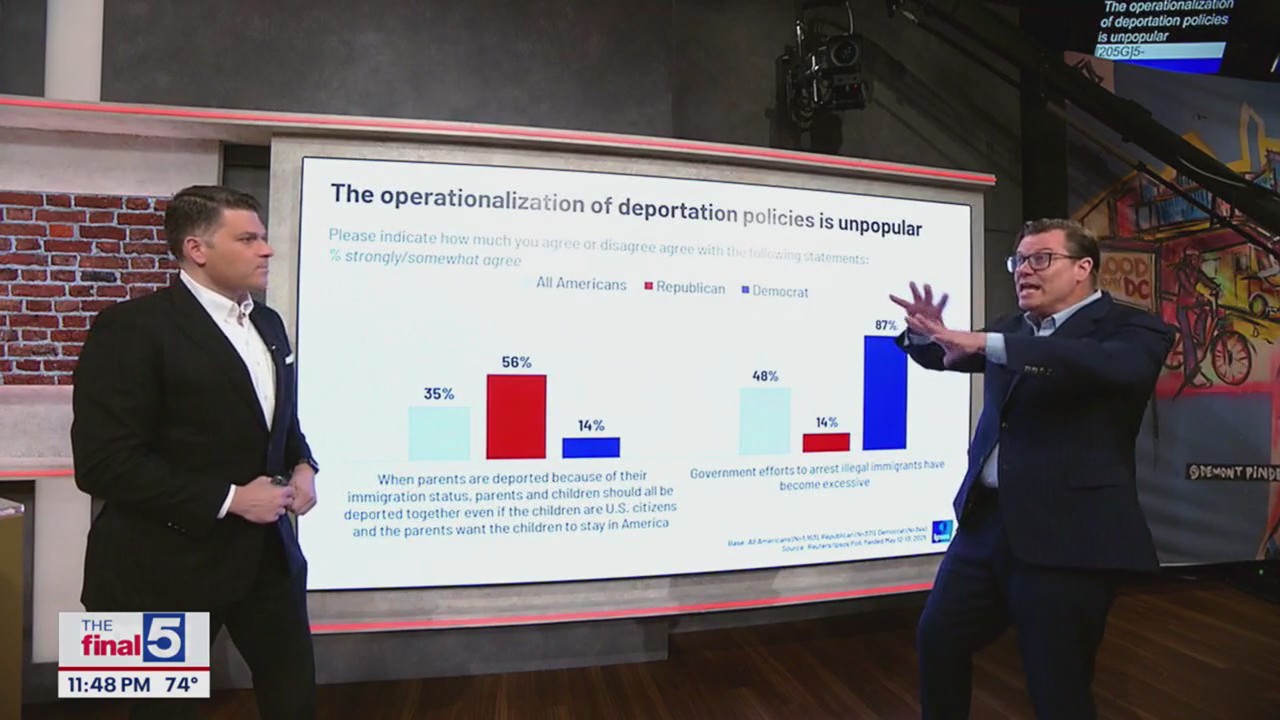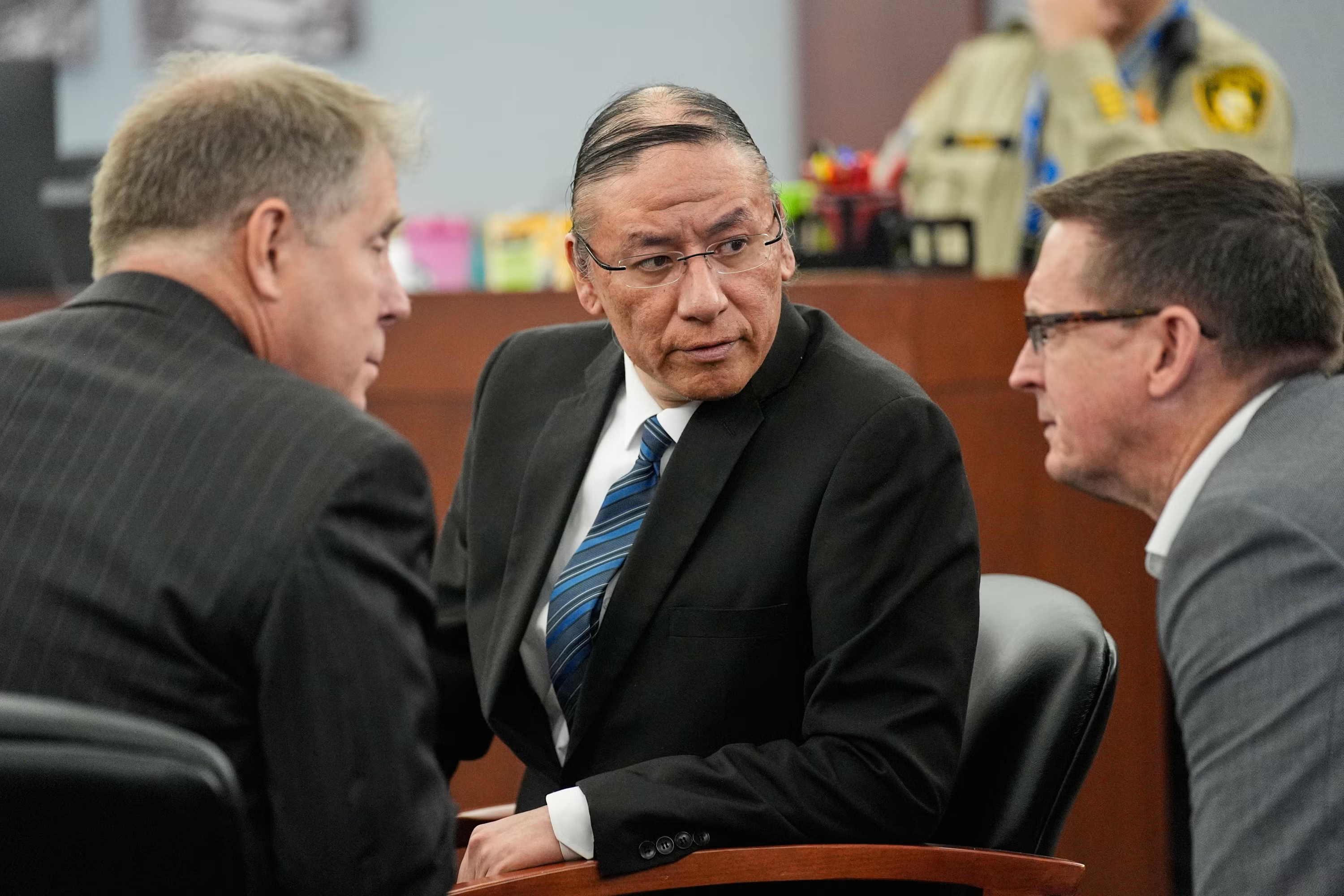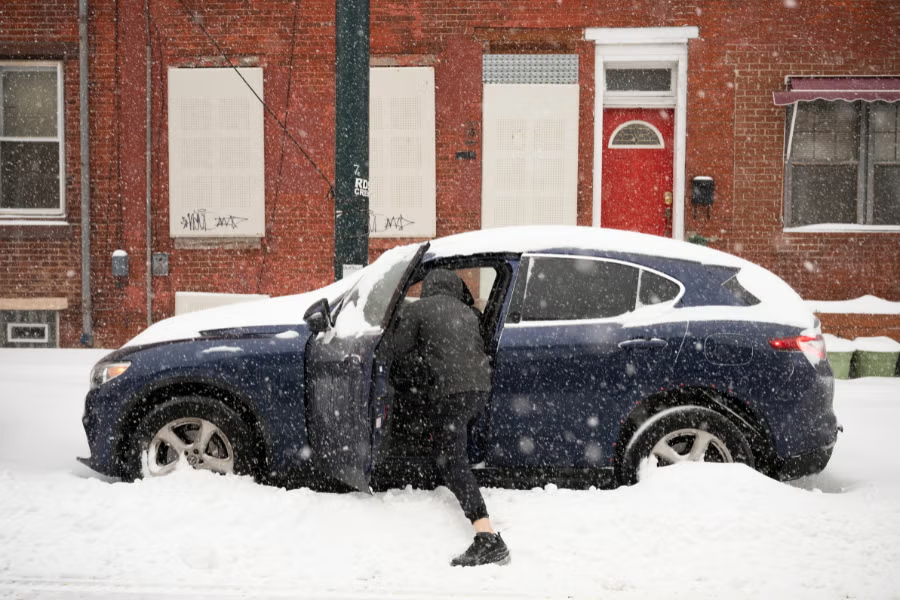
Getting the pulse of the people on Trump & immigration
As immigration protests flare up nationwide, Ipsos President Cliff Young joined The Final 5 with Jim Lokay to break down the latest polling trends. Young says immigration has surged back into the top tier of voter concerns, especially among Republicans, though it’s still eclipsed at times by the economy and threats to democracy. While Trump’s overall job approval hovers around 48%, his immigration approval has slipped amid controversy over mass deportations. Ipsos polling shows deep partisan divides, with stark disagreements on deporting undocumented parents of U.S. citizen children and due process rights. Young says immigration will remain a defining issue in the weeks ahead.
WASHINGTON – The Trump administration is planning to make the U.S. citizenship test more difficult, according to U.S. Citizenship and Immigration Services (USCIS) Director Joseph Edlow, who spoke at the Center for Immigration Studies in Washington on Thursday.
Dig deeper:
Edlow said at the think tank that the current test is “just too easy” and argued that people can be “coached” on how to pass—people who may not qualify for citizenship under U.S. law.
“A question of simply, ‘hey, name two federal holidays’ and, you know, ‘name one branch of government’ or ‘name your governor.’ It’s simply not enough,” he said. “We need to know more, especially if we’re going to really understand whether someone has a true attachment to the Constitution as required by the statute.”
The current test requires that applicants for citizenship correctly respond to at least 6 out of 10 questions drawn from a list of 100 questions available online. Applicants must also prove they possess basic English skills.
Proposed changes
Edlow said that the test needs to be more “thought-provoking,” and added that applicants may be required to write an essay outlining what becoming an American means to them. He also said the test may move toward a standardized format.
Edlow embraced the idea that USCIS is an “enforcement” agency in his remarks Thursday, as well.
“I am declaring war on fraud,” he said. “I am declaring war on anyone that is coming to this country and wants to get a benefit, but doesn’t want the responsibility of what it means to actually be a U.S. citizen.”
Along with Edlow’s remarks, USCIS submitted a final rule on Thursday that would expand the agency’s law enforcement apparatus. In a press release, the agency argues that having its own special agents who work with other law enforcement will help combat cases of fraud.
“Having agents there who can help do detective work and investigate some of these cases is going to help us get to the right decision and make these decisions so we can move forward with the integrity of the system,” Edlow said.
Trump and immigration
Big picture view:
These proposed changes to the citizenship test are just the latest example of the Trump administration bearing down on the U.S. immigration system even further during the president’s second term.
President Trump vowed on the campaign trail to build “the largest deportation operation” in history, and so far, he’s been fairly successful in his efforts.
For example, USCIS recently said it would resume interviewing immigration applicants’ coworkers and neighbors, a practice that’s been paused since the first Bush administration.
The Republican-controlled U.S. Senate also passed a budget reconciliation bill in July that included an unprecedented allocation of funds for immigration detention and enforcement. The bill was passed with Vice President JD Vance contributing the tie-breaking vote.
Furthermore, the Department of Homeland Security is seeking to hire 10,000 new Immigration and Customs Enforcement (ICE) officers and 3,000 Customs and Border Protection (CBP) agents by the end of 2025. To get to those numbers, Trump’s Deputy Chief of Staff Stephen Miller has been advertising substantial incentives for ICE recruits, such as a $50,000 signing bonus and as much as $60,000 in student loan repayment.
The agency has also expanded its officer recruitment age, which was generally 21 to 40, to all people 18 and up. Training periods have been shortened, as well.
In August, Trump even invoked the D.C. Home Rule Act to place the Metropolitan Police Department under federal control, citing the need to combat violent crime in the nation’s capital. In his administration’s periodic updates on the takeover, there’s been an emphasis on the undocumented migrants that have been arrested.
During a situational update on the federal law enforcement presence in the District last week, D.C. Mayor Muriel Bowse said that she senses a lot of “anxiety” in D.C. right now and added that federal officers need to be less focused on immigration enforcement and more on violence.
And earlier this week, Trump said that he plans to direct federal law enforcement intervention in Chicago and Baltimore, but offered no timetable. He’s proposed doing the same in other Democratic-controlled cities across the U.S., as well.
The Source: Information above was sourced from POLITICO, U.S. Citizenship and Immigration Services, the Federal Register, the American Immigration Council, Boundless Immigration, the Department of Homeland Security, The Los Angeles Times, The Guardian, and previous FOX 5 DC reporting.



